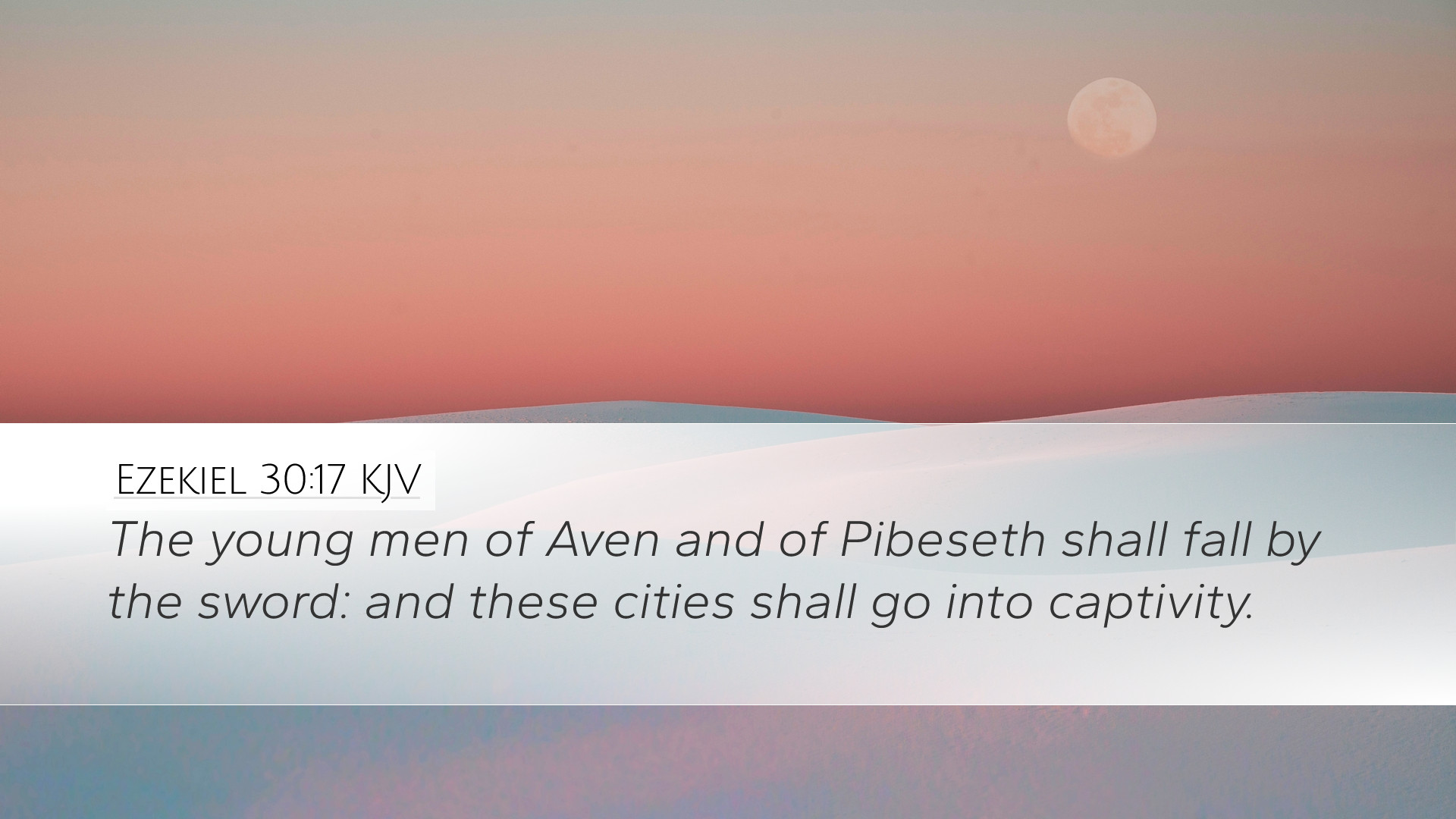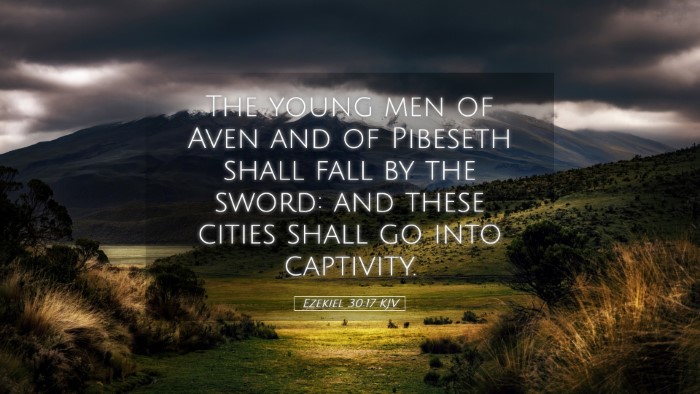Ezekiel 30:17 - Commentary Overview
Bible Verse: Ezekiel 30:17 - "The young men of Aven and the multitude of the people shall fall by the sword: and these shall go into captivity."
Contextual Background
Ezekiel, a prophet during the Babylonian exile, delivered messages of judgment against Israel and surrounding nations. Chapter 30 is part of a larger prophecy concerning Egypt's imminent downfall. This prophecy serves to remind Israel that God's sovereignty extends over all nations.
Thematic Insights
-
Judgment Against Egypt:
The focus of this verse is the impending judgment on Egypt, symbolized through the "young men of Aven." Aven refers to a city perhaps associated with idolatry and sin, emphasizing the consequences of turning away from the true God.
-
Consequence of Rebellion:
This passage depicts a graphic image of devastation, reinforcing the idea that rebellion against God leads to dire consequences—in this case, war and captivity.
Commentary Insights
Matthew Henry's Commentary
Matthew Henry explains that this portion of Ezekiel reveals the divine judgment that God would execute upon Egypt for its pride and idolatry. He highlights the fate of the "young men" as a tragic consequence of national sin, emphasizing that their youthful energy would not save them from impending doom.
Albert Barnes' Notes
Albert Barnes points out that the mention of the "multitude of the people" suggests a widespread impact of this judgment. The use of the term "sword" symbolizes violence and destruction, indicating that the Egyptian military, comprising mostly young men, would face defeat. This serves as a stark reminder of the limits of human strength against divine will.
Adam Clarke's Commentary
Adam Clarke elaborates on the historical context, noting that the fall of Aven would particularly affect the young men, whose lives were cut short. Clarke also discusses the phrase "shall fall by the sword," emphasizing that it illustrates not only physical death but also spiritual consequences—suggesting a loss of identity and purpose devoid of God's protection.
Theological Reflections
-
God’s Sovereignty:
This verse emphasizes God’s control over nations and history. It reassures believers that God’s plans will come to fruition regardless of human actions or national pride.
-
Idolatry and Its Consequences:
It serves as a cautionary tale against the allure of idolatry and the resilience of God’s call towards repentance. Aven’s destruction represents the ultimate fall of those who worship false idols.
-
Hope in Judgment:
While judgment is intense, there is an underlying hope that God’s sovereignty leads to restoration for those who submit to His will. This provides comfort to the people of Israel amid their trials.
Application for Today’s Believers
As we reflect on Ezekiel 30:17, it becomes essential for pastors, students, and scholars to consider the implications of this message in a modern context:
-
Cultural Idolatry:
In our current age, we are constantly confronted with various forms of idolatry. This scripture invites self-examination to identify and dismantle these modern idols.
-
Call to Repentance:
Just as Egypt faced judgment for its sins, contemporary believers must recognize that unrepentant hearts can lead to spiritual decay. This verse encourages continual repentance and seeking God’s mercy.
-
Hope in Despair:
The destruction foretold in this passage serves to remind believers that amidst judgment, there is hope and future restoration through genuine faithfulness.
Conclusion
Ezekiel 30:17 encapsulates themes of judgment, the consequences of idolatry, and the sovereignty of God over nations. As we study this verse in light of commentary from Matthew Henry, Albert Barnes, and Adam Clarke, we uncover deep theological insights that resonate with both ancient and contemporary audiences, informing our understanding of divine discipline and the necessity of genuine worship.


